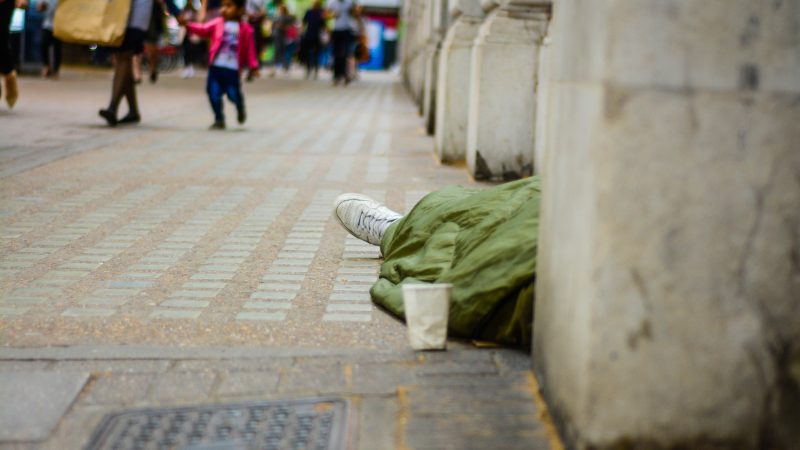
According to Centrepoint’s latest estimates, 129,000 young people approached their council for help to avoid becoming homeless last year. That’s 353 young people a day. A new young person every four minutes. Two out of five young people approaching their council are not offered support. We know, at least in London, that only about 20 to 50% of young people ever make it as far as their council.
The experiences of young people in London are replicated across much of England. Frontline organisations like New Horizon Youth Centre (NHYC) know that the official homelessness figures are the tip of the iceberg. There are thousands more who are hidden homeless, navigating between friends’ sofas and the fear of the streets.
Young people facing homelessness encounter youth-specific barriers
Pushed into homelessness, young people find themselves facing youth-specific barriers. Often leaving homes where they are somewhat socially and economically dependent, young people face challenges evidencing their homelessness and are told to go back to unsafe homes. Even when they do get support, they find themselves subject to age-related pay and benefit discrimination.
Young people like Talia, who walked through the doors of NHYC after weeks of sleeping in her partner’s car. Asked to leave home by her parents because of her sexuality, the council told her they couldn’t help, that she wasn’t in priority need, despite having complex mental health diagnoses. Out of options, she stayed up all night looking for services who could provide her with a lifeline and was in the NHYC day centre the following day accessing its housing, advice and health teams. Talia is just one of 1,200 people who came to NHYC for support last year. Young people like Talia deserve better.
Young people are often pushed into homelessness due to violence, abuse and trauma at home or in the care or the criminal justice system. Required to be socially and financially independent for the first time, they face lower pay and minimum wage jobs and are punished by lowered benefits if they increase their work hours despite receiving lower income overall.
There isn’t enough suitable, affordable and youth-appropriate housing. And with no ready guarantor to secure rental housing if family relationships have broken down, young people can be left with no options and at serious risk of exploitation. This picture is only exacerbated for young people of minoritised communities due to existing systemic inequities.
Labour must work with frontline organisations to deliver real change
One of us (Paula) spent our entire working life in local government before entering parliament, and becoming shadow minister for homelessness and rough sleeping. As a local government worker, that meant witnessing first-hand the damage of successive years of austerity and cuts to budgets. Councils, more than most, have borne the brunt of failed economic policies that have seen inequality skyrocket. And it is young people like Talia that are paying the price of a broken system, with local government all too often unable to effectively implement the legislative framework they operate under due to a lack of resources.
Tackling and reducing all forms of homelessness requires big thinking and the ability to implement a genuine cross-departmental plan in government. All too often, young people fall through the cracks as they pass between institutions and places – for example, leaving the care system, coming out of prison or being asked to leave home when they reach a certain age.
The Labour Party is in the throes of developing its policy offer ahead of the next general election. The party can only offer real hope if its plans are credible and able to be delivered against a backdrop of difficult economic circumstances. That is why it is essential that frontline organisations like the NHYC and policy makers work together in genuine partnership to deliver real change for those who need it.
Homelessness isn’t a mystery or senseless. It’s a direct outcome of the failure of systems that are meant to protect us all. When people don’t have the ability or support to advocate for themselves and push for help, they fall through the cracks. The severity of the situation requires a bolder and youth-specific response.




More from LabourList
Government abandons plans to delay 30 local elections in England
‘The cost of living crisis is still Britain’s defining political challenge’
‘Nurses are finally getting the recognition they deserve’